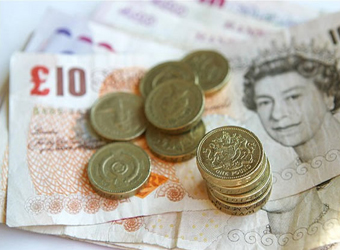Investors are underestimating the impact of the U.K. and European Union (EU) failing to reach a trade agreement and the subsequent influence on sterling, a strategist at BofA Merrill Lynch says.
The ramifications of a transitional trade agreement between the U.K. and the EU either falling through or eventually being agreed upon could have binary implications for sterling against the dollar, Thanos Vamvakidis, head of European G10 FX strategy at BofA Merrill Lynch, told CNBC on Friday.
“(That is) extremely important and I don’t think the market is focusing enough on this issue…” Vamvakidis said.
“The Brexit negotiations will take two years (and) we know that the new trade agreement between the U.K. and the EU will take much longer. Usually it takes seven to ten years, (look at the) Canada deal with the EU which took seven years.”
Prime Minister Teressa May has previously indicated that she would be willing to walk away from the EU with no trade agreement deal, therefore leaving Britain dependent on World Trade Organization (WTO) rules. She argued in a speech on Jan 17, “no deal for Britain is better than a bad deal for Britain.”
“You need something in the interim period, a transition agreement. Without it you go to the WTO rules, this is why agreement transition or not has binary implications… if you have an agreement then we can see cable well above 1.30, if you don’t it can go as low as 1.10,” Vamvakidis argued.
“Without a transition, you don’t have just a hard landing; you have an over-shooting because the WTO rules are much worse than any possible trade deal. This is why we believe it is in the benefit of both sides to avoid the WTO cliff and have an agreement and a transition period,” he concluded.
Brexit passed its first legislative hurdle on Wednesday after the U.K. parliament voted overwhelmingly in favor of starting the formal two year negotiation process with the EU. Britain could be set to complete the legislative process by March 7 which would meet Prime Minister Theresa May’s self-imposed April deadline to begin divorce talks with the bloc.
Sterling added to losses in the previous session to fall 0.2 percent lower against the dollar to $1.24 in lunchtime trade Friday. The British pound continued to skew lower after the Bank of England announced it would be keeping interest rates unchanged and raised its growth forecasts for the U.K. economy.
Source: CNBC
